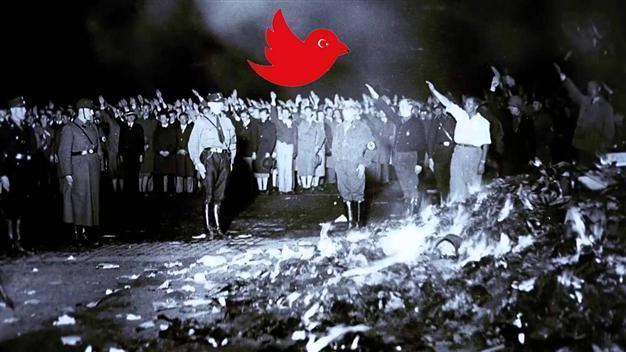'21st century book burning,' U.S. official blog slams Ankara
ISTANBUL
 The official blog of the U.S. Department of State has slammed Turkey's blocking of Twitter as "21st century book burning."
The official blog of the U.S. Department of State has slammed Turkey's blocking of Twitter as "21st century book burning.""Every day, governments around the world devote precious resources to Internet censorship. It is 21st Century book-burning -- and it doesn’t make anyone stronger. This brand of suppression affects all of us: In an era in which the Internet serves as the world’s community forum, censorship anywhere is a threat to freedom of speech everywhere," Douglas Frantz, Assistant Secretary for Public Affairs, wrote on the the State Department's official blog, Dipnote, on March 21.
"Sometimes even our friends make this mistake. A friend like Turkey has nothing to fear in the free-flow of ideas and even criticism represented by Twitter. Its attempt to block its citizens’ access to social media tools should be reversed," Frantz said.
The third statement from U.S.
Earlier in the day, State Department spokeswoman Jen Psaki had said the order to prevent Turks from accessing the U.S. firm's micro-blogging site was "contrary to Turkey's own expressed desire to be a model of democracy."
"The United States supports freedom of expression in Turkey and opposes any action to encroach on the right to free speech," she told reporters.
"The United States is deeply concerned that the Turkish government has blocked its citizens’ access to basic communication tools," a separate statement released by the White House press secretary had said.
Several critics of the government in Turkey claim that neither the State Department nor the White House pressures Ankara enough, but the White House statement said Washington's "serious concern" was being conveyed directly to Ankara.
'A recipe for greater social unrest'
The State Department's blog post, on the other hand, used much stronger words while criticizing Ankara. "The way we respond to criticism is what separates vibrant democracies from authoritarian regimes. Indeed, the fact that our 68th Secretary of State was once a full-time dissenter is proof positive that dissent makes us stronger not weaker," Frantz wrote.
The blog post stated that "walls are built then scaled, raised then circumvented. Twitter is blocked and tweets still fly. YouTube is shut down and videos are still streamed." It continued:
"Government leaders must accept that they do not have the power to prevent conversations from taking place. They only have the choice of whether to participate in them. And you can be sure that if people are banned from social media they will find other ways to voice their opinions. The determination to communicate is universal, and the right to free speech should be universal, too. Governments that try to silence their own people are fighting a losing battle -- and one that is a recipe for greater social unrest."
Meanwhile, Samantha Power, U.S. Ambassador to the United Nations, tweeted the following message:
















